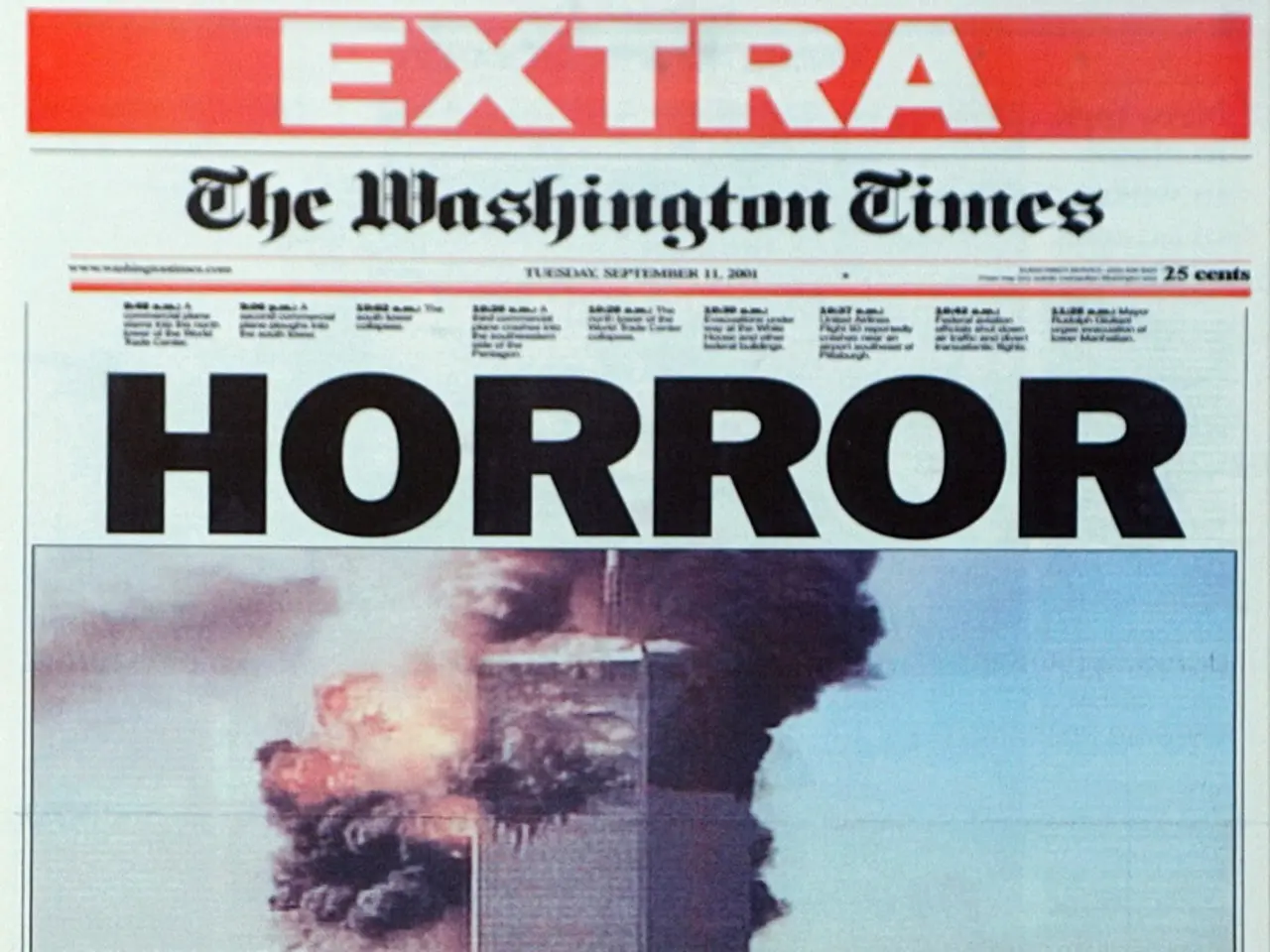European stocks expected to slightly increase at market opening
The pan-European STOXX 600 index experienced a significant setback on Friday, slumping 1.9 percent in its worst session since April, as global growth concerns escalated following President Trump's announcement of new tariffs [1]. Across the Atlantic, U.S. stocks also took a hit, with the Dow, S&P 500, and Nasdaq Composite all recording losses [2].
The latest round of tariffs is expected to have a minimal negative impact on the overall European economy, with estimated GDP effects around a 0.3%-0.5% reduction [1]. Sector-specific industries such as automotive, chemicals, metals, and parts of pharmaceuticals are likely to bear the brunt of these tariffs [1].
European stocks have shown some increased uncertainty, but recent trade agreements have reduced downside growth risks, limiting severe negative shocks to market confidence [1][4]. Broader market volatility depends heavily on other geopolitical and trade factors, and significant equity market deterioration is not clearly attributable only to the tariffs [4].
For companies like Berkshire Hathaway, the impact would generally depend on the tariff effects on their specific subsidiaries and sectors. Since most tariff-related impacts are sector specific and relatively small at the macro level, Berkshire Hathaway’s overall performance is unlikely to be severely affected purely by these tariffs [3]. Ongoing massive EU investments into the U.S. and expanded energy purchases are improving bilateral economic ties, which could mitigate some negative tariff effects on U.S. companies doing business with or in Europe [3].
Looking ahead, the European economic calendar is light this week, with PMI data from the EU and the U.K. being a key focus. The latest employment report shows nonfarm payrolls expanded by 73,000 in July, significantly lower than the expected increase of 110,000 jobs [1].
In the midst of these developments, the U.S. Trade Representative Jamieson Greer stated that the latest round of tariffs is "pretty much set" and unlikely to change [1]. Warren Buffett's Berkshire Hathaway reported that its consumer goods businesses were affected by U.S. tariffs in the second quarter, causing delays in orders and shipments [1].
Elsewhere, Seoul stocks climbed following a steep fall last week, despite the government's tax revision proposal to raise taxes on corporations and stock investors [1]. The German DAX plunged 2.7 percent, France's CAC 40 plummeted 2.9 percent, and the U.K.'s FTSE 100 shed 0.7 percent [1].
Gold is little changed, having gained the most in two months on Friday due to traders' increased bets on imminent Federal Reserve rate cuts [1]. Oil prices are slightly lower in Asian trade following OPEC+'s agreement for another large production hike in September [1].
These insights reflect the latest analysis and trade developments as of mid-2025.
[1] Reuters, "U.S. Trade Representative says latest round of tariffs is 'pretty much set'," 2025. [2] CNBC, "U.S. stocks tumble on Friday," 2025. [3] Financial Times, "Berkshire Hathaway's European exposures brace for impact," 2025. [4] Bloomberg, "European stocks suffer heavy losses due to Trump's tariffs," 2025.
Businesses and investors are closely monitoring the impact of new tariffs on the stock-market and finance sector. The trade disagreements have led to a decrease in global market confidence, as evidenced by the recent setback in the European and U.S. stock-markets. However, the estimated GDP effects of these tariffs on the overall European economy are minimal, with specific industries like automotive, chemicals, metals, and certain pharmaceuticals being the most affected.




